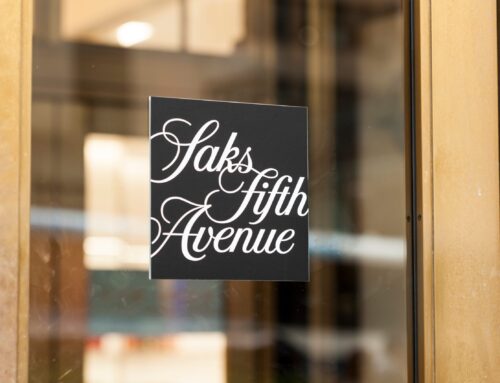Amid industry pushback, Alabama lawmakers move forward on efforts to regulate cannabis products
March 30, 2025
MONTGOMERY, Ala. — Despite considerable opposition from a segment of the Alabama business community, several state lawmakers have pushed forward with efforts to impose strict regulations on psychoactive cannabinoid products such as delta-8 and THC-infused drinks, products derived from cannabis or hemp.
“In 2023, the Alabama Poison Information Center investigated 235 cases involving delta-8, and more than 40% of calls were for children six and under,” Rep. Andy Whitt, R-Harvest, wrote in a recent op-ed. Whitt recently filed House Bill 445, which would impose strict regulations on all consumable hemp products, similar to how alcohol is regulated.
“…This will be a challenging undertaking, but I believe that any measure aimed at protecting the future of our state is one that lawmakers must seriously consider.”
Whitt is not alone in his efforts to regulate psychoactive cannabinoid products, which have exploded into a multibillion-dollar industry since the the production and sale of hemp products was legalized under the 2018 Farm Bill, an unintentional side effect of the federal legislation.
In early February, Sen. Tim Melson, R-Florence, filed a bill that would have outright banned all psychoactive cannabinoid products in the state, classifying them as Schedule I controlled substances alongside cocaine and marijuana. After failing to gain any traction, however, Melson would go on to file Senate Bill 237 which, similar to HB445, would regulate psychoactive cannabinoid products similar to alcohol.
Under SB237, the regulating agencies for psychoactive cannabinoids would be split between the Alcoholic Beverage Control Board for THC-infused drinks, and the ABC Board and the Department of Revenue together for all other psychoactive cannabinoids. Strict advertising restrictions would be imposed on said products, new licenses would be required for retailers, and a 10% excise tax would be levied on all sales.
The bill came up in a Senate committee last week but failed in a tied vote of 4-4, with a number of industry representatives speaking out against the measure.
“It puts hemp under ABC which oversees liquor, not agricultural products,” said Molly Cole with the Alabama Hemp & Vape Association, speaking at a public hearing on SB237 earlier this month.
“This move not only burdens an already-stretched agency, but it also risks penalizing and criminalizing hemp products more harshly than alcohol and tobacco.”
After the meeting, Melson did not mince words in response to the pushback his bill had seen from those in the psychoactive cannabinoids industry.
“If I had an unregulated product that I was able to take to the market and charge what I want for it, I probably wouldn’t want it regulated either,” Melson told Alabama Daily News.
“I’m just trying to get it under control. I keep getting calls from people having children show up in the ER for taking something they’re not even supposed to be allowed to buy, so it just needs to be moved.”
Some organizations opposed to banning or overregulating psychoactive cannabinoids have argued that such measures could lead to an increased demand for such products on the black market and increase risks for consumers, such as the Hemp Industries Association, an American trade group that advocates for the industrial hemp industry.
At least when it came to opposition from local organizations and businesses, however, Melson argued their concerns seem to be made in bad faith.
“These individuals have found a loophole in the industry that they’re trying to exploit,” he told ADN. “They keep bringing up all these medical reasons, and those medical reasons, in my opinion, are excuses to get a product out there for people to enjoy, whatever you want to call it. It’s an adult product that’s getting sold to minors, and that brought all this to the forefront.”
While SB237 failed to pass out of committee last week, Melson told ADN Thursday that the bill was “not dead yet,” with Whitt’s similar bill, HB445, set to be heard in the House Committee on Health at an as-of-yet undetermined date.
In his op-ed, Whitt shared a similar concern to Melson’s regarding the impact psychoactive cannabinoids have had on adolescents.
“I’ve heard from superintendents, student resource officers, teachers, and parents about the prevalence of these products within the classroom,” he wrote.
“One teacher told me he could not leave his classroom to use the bathroom because students would use vaporizer devices to get high off delta-8 in his absence. The root cause of this is the fact that these products are available in all shapes and dosages, from gummies marketed to look like candy … that is visually identical to marijuana.”
Whitt’s bill differs from Melson’s in that all consumable hemp products would be regulated by the ABC Board, as opposed to the split design in SB237. Whitt’s bill would also only allow for the sale of psychoactive cannabinoids at liquor stores or standalone hemp stories, and levy 7% excise tax, as opposed to the 10% under SB237.
Sen. Rodger Smitherman, D-Birmingham, has filed his own bill to regulate psychoactive cannabinoids, Senate Bill 255, also filed this month. Under the proposal, the regulating agency for products sold in retail would be the Department of Revenue, and for product safety and testing, the Department of Agriculture. It would also impose a 6% tax on said products.
Search
RECENT PRESS RELEASES
Related Post



